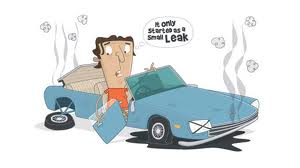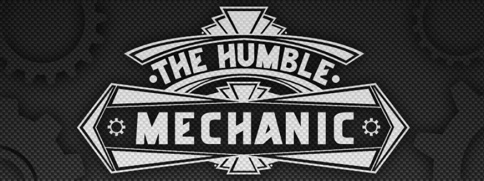I am a pretty big fan of people doing their own maintenance. I think it is important to understand at least the basics of the car they drive. All of that stuff goes out the window when DIY goes wrong.
We have talked before about DIY. There are several things that you need to consider when it comes to DIY verses paying someone to make a repair.
- Price
- Time
- The proper tools
- Know how
Those are just a few things you need to consider. You can read more about it at “Should you make a repair, or pay a mechanic?”
This is when a customer SHOULD NOT have done their own work. A mk4(1999.5-2005) Jetta was towed into the shop. I was not the one working on this car. I happened to catch one of the other techs pushing a car in the shop. That is not really such a strange thing, but he was pushing it weird.
When I walked over to see what the heck he was doing, he told me the car had no brakes. I laughed and said “yeah right”. We got the car on the life, and sure enough, the car had no brake pads in the rear. With the wheel off, this is what we found
 Yep, that confirmed it, no brake pads. The story that I got was, the customer tried to do a rear brake job. They took the brakes apart and even resurfaced the rotor. When it came time to reset the piston on the caliper, they realized they didn’t have the right tool.
Yep, that confirmed it, no brake pads. The story that I got was, the customer tried to do a rear brake job. They took the brakes apart and even resurfaced the rotor. When it came time to reset the piston on the caliper, they realized they didn’t have the right tool.
On many modern cars, the rear caliper needs to be twisted back to reset. VWs are are the same way. There are ways to improvise the special tool. Before I knew anything about cars, I tackled the brakes on my Acura. I used a pair of pliers to twist the caliper back. It was a real pain in the butt, but it did the trick.
 This is the back side of the caliper. The round part, piston, is what pushes the brake pad into the rotor. The piston is protected by a rubber boot. It keeps debris from getting into the caliper. As you can see this boot is ripped.
This is the back side of the caliper. The round part, piston, is what pushes the brake pad into the rotor. The piston is protected by a rubber boot. It keeps debris from getting into the caliper. As you can see this boot is ripped.
Let’s recap this DIY repair. If the customer would have brought their car to the dealer to have the pads replaced, and the rotors resurfaced, they would have paid about $270(that is just an estimate). Instead the customer paid
- A bill to have the car towed to the shop
- The time for us to pull the brakes apart and inspect the damage
- Parts and labor to rebuild or replace the calipers.
- Several days with out a car
This is a classic example of DIY not being worth it.
I hope that we can all learn something from this. I learned that trying to stop a car, even when pushing it, is really scary to try and stop.
I posted last week about upgrading the email service I use. That is currently on hold. There were a few things that I didn’t really like about the service I was going to use. I still plan on upgrading, it is just a matter of time. All that being said, make sure you are on the email list. I don’t spam or sell the information. That would be lame!












